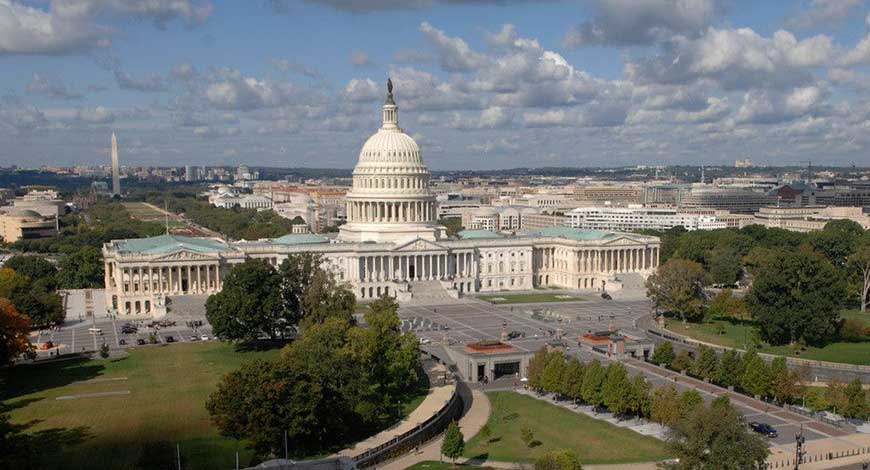International Circuit
New bill would restore, expand broadcasters’ foreign programming ID check

A bipartisan, bicameral effort in Congress is looking to help the Federal Communications Commission reinstate a new rule requiring broadcasters to do more due diligence when identifying foreign-sponsored programming and FCC Democrats are on board with the effort.
Not only would it restore a mandate to check two government databases, but broadcasters would have to check anywhere else the FCC thinks they should go to establish the identity of foreign programming.
After the FCC unanimously passed a new rule saying broadcasters had to check two government databases (the Department of Justice’s Foreign Agents Registration Act website and the FCC’s U.S.-based foreign media outlets reports) to ensure that such programming was identified to viewers, the U.S. Court of Appeals for the D.C. Circuit vacated that new rule, saying the agency didn’t have the authority to require that extra step.
The FCC had said broadcasters needed to check the two federal sources to determine a sponsor’s identity, which went beyond the 1934 Communications Act requirement to ask employees and advertisers for the information necessary to establish sponsorship.
Just last week FCC chair Jessica Rosenworcel circulated a new proposal to toughen the foreign-sponsorship identification rules without the mandatory database check, hoping that will pass muster with the courts.
But Monday (Oct. 17), Rep. Anna Eshoo (D-Calif.) and Sens. Brian Schatz (D-Hawaii) and Marsha Blackburn (R-Tenn.) introduced House and Senate versions of a bill, the Identifying Propaganda on Our Airwaves Act(opens in new tab), that would give the FCC the statutory backing to require broadcasters to check those databases or, for that matter, “any additional source of information the Commission designates that may enable the licensee to verify whether the matter broadcast by the radio station was paid for or furnished by a foreign governmental entity.”
“By giving the FCC the authority to require disclosure of this foreign propaganda, our bipartisan bill will help stop this practice and improve programming transparency on TV and the radio,” Schatz said.
“The legislation grants the FCC the authority to require broadcasters to check sources that actually identify foreign agents and their shell companies when entering into and renewing airtime lease agreements for sponsored programming on the radio,” Blackburn said.
“The principle that the public has a right to know the identity of those who solicit their support is a fundamental and long-standing tenet of broadcasting,” Rosenworcel said. “Consumers deserve to trust that public airwaves aren’t being leased without their knowledge to foreign governments. I appreciate the leadership of Senators Schatz and Blackburn and Representative Eshoo for their efforts to increase transparency and ensure consumers know who is behind the information transmitted over public airwaves.”
Commissioner Geoffrey Starks said: “The fact that foreign governmental entities are covertly broadcasting on our television and radio stations is alarming. The American people have a right to know the identity of those using the public airwaves in order to be informed and make their own decisions in separating truth from disinformation.”
The FCC had argued that double verification fell within reasonable diligence and its general authority to prescribe appropriate rules and regulations. The National Association of Broadcasters (NAB) had argued broadcasters had told the court that the FCC’s decision to make broadcasters affirmatively investigate whether programming — including ads and infomercials — was being paid for by foreign entities was an arbitrary and capricious, unconstitutional response to a “phantom” problem, pointing to a past court decision that statutory language imposes no burden of “independent investigation” by licensees.
The new bill includes that statutory language does impose the “burden” of independent investigation.
“We are closely reviewing this legislation,” said NAB spokesperson Alex Siciliano. “NAB and several other broadcast organizations have worked to ensure the rules are focused on the handful of broadcasters that air foreign government-sponsored programming, without creating burdens for the vast majority of broadcasters that do not air this content. As we have made clear from the beginning, we share the goal of ensuring that the public understands when it is watching or listening to foreign propaganda.” Nexttv





